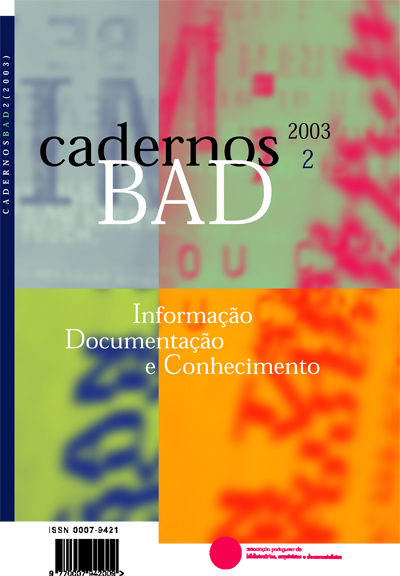More than Information, other than Knowledge: the Nature of Archives in the Digital Era
DOI:
https://doi.org/10.48798/cadernosbad.845Abstract
The nature of archives has been defined over time according to the use made of them. The records of an archival fonds have been considered facts, acts, sources, evidences and, in more recent times, equated with information and even knowledge. This evolution is mostly linked to the use of digital technology for creating records and the consequent blurring of the boundaries among the various types of digital objects generated within electronic systems. This trend is undermining our ability to create records that are reliable and to maintain archives so that they can be proven authentic over the long term. It is therefore essential to re-establish a concept of archives based on the circumstances of its creation, to define the characteristics that distinguish records from any other digital entity, and to protect them in trusted recordkeeping system capable of ensuring that their nature will be altered intentionally or accidentally.Downloads
Download data is not yet available.
Downloads
Published
2003-12-31
How to Cite
Duranti, L. (2003). More than Information, other than Knowledge: the Nature of Archives in the Digital Era. Cadernos BAD, (2). https://doi.org/10.48798/cadernosbad.845
Issue
Section
Dossier temático
License
Os autores que publicam nos Cadernos BAD:
- Concedem à revista o direito de primeira publicação, mantendo os direitos de autor, de acordo com os termos da Creative Commons Attribution, que permite a partilha do texto com menção obrigatória da publicação inicial nos Cadernos BAD;
- Mantêm o direito de publicar o texto noutros locais (ex.: repositório institucional, capítulo de livro, outra publicação periódica), com menção da publicação inicial nos Cadernos BAD e uma ligação para o sítio na Internet da revista;
- Mantêm a possibilidade e são mesmo incentivados a publicar e distribuir o seu trabalho online (ex.: em repositórios institucionais ou na sua página pessoal) antes ou durante o processo editorial, já que isso pode potenciar interações geradoras de melhoria, bem como aumentar o impacto e a citação do texto publicado (Veja Efeitos do Acesso Livre).


